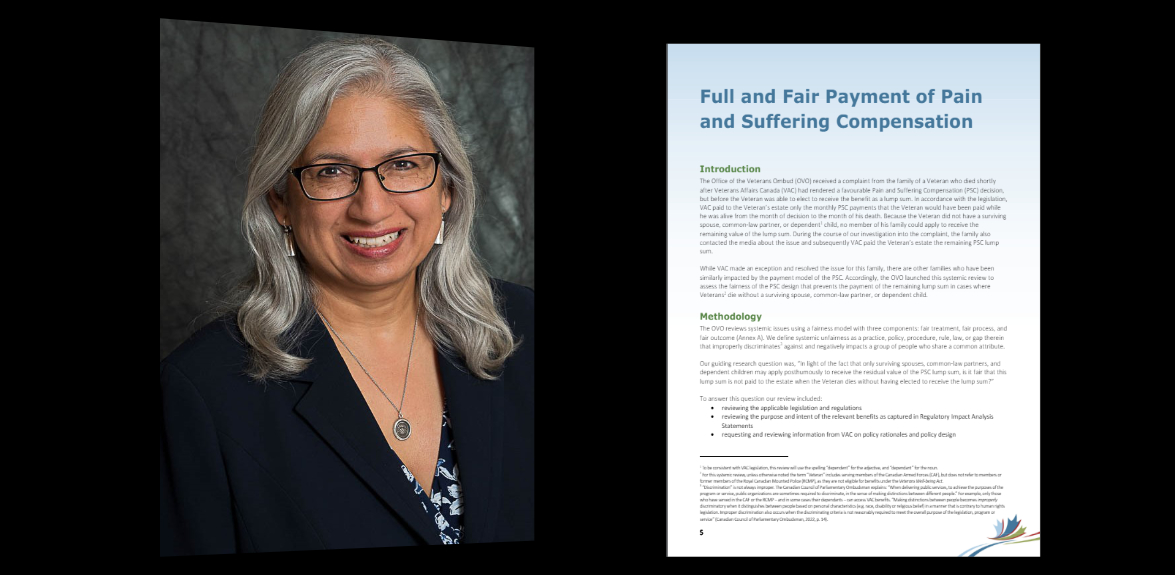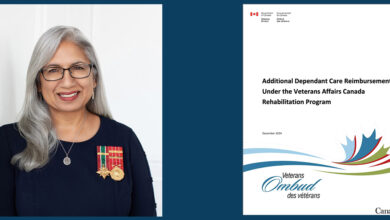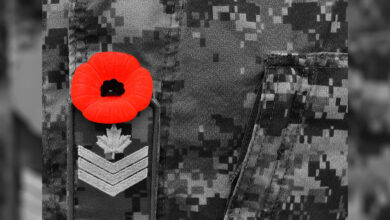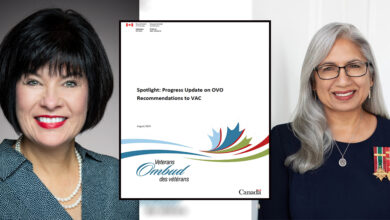Veteran
Veterans Ombud Issues Report Regarding VAC’s “Systemic Unfairness” in Dispensing Pain and Suffering Compensation Benefit
New findings from the Veterans Ombud indicate that there is “systemic unfairness” in the way Veterans Affairs Canada (VAC) dispenses the Pain and Suffering Compensation (PSC) benefit.
In particular, the unfairness impacts those veterans who die before they choose to receive the lump sum amount payment of the PSC.
The report, which was issued in March 2024, was launched as a result of a complaint received from the family of a veteran who died shortly after becoming eligible for the PSC but before they were able to receive the lump sum amount.
“While I acknowledge that VAC corrected the unfairness for this particular family, there are other families who have been similarly affected by the PSC payment model. That is why the OVO launched this systemic review and is releasing this report today,” said Veterans Ombud, Col. (ret’d) Nishika Jardine.
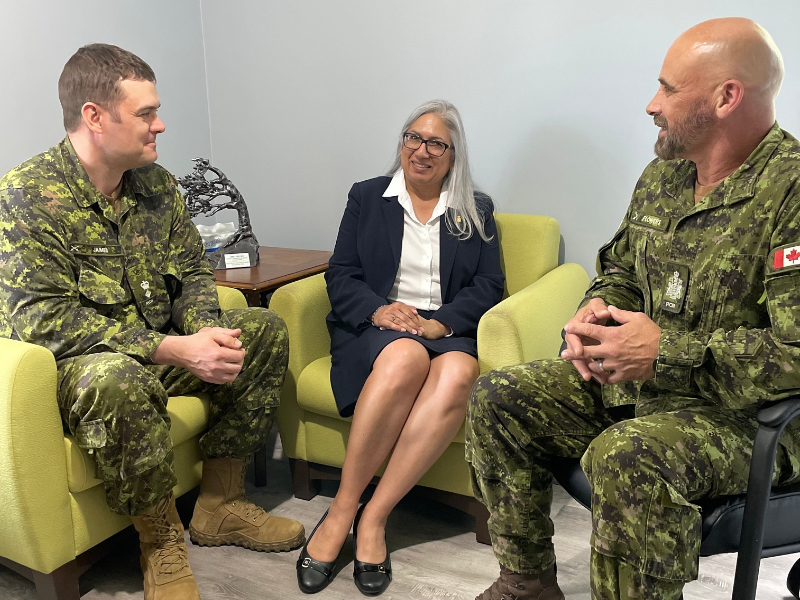
The PSC- benefiting Veterans with disabilities
In 2019, VAC introduced the Pension for Life, which contains three distinct benefits:
- Pain and Suffering Compensation (PSC),
- Additional Pain and Suffering Compensation, and
- The Income Replacement Benefit.
Since April 2019, the PSC has replaced the lump sum Disability Award with a monthly payment for life. However, it allowed the option for veterans to choose a lump sum amount.
“The PSC is now the Department’s principal disability benefit, which compensates for service-related disability and provides access to other VAC benefits such as healthcare coverage,” stated the Ombud report.
Similar to the previous Disability Award, the PSC can be paid to a surviving spouse, common-law partner or dependent children after a Veteran has passed away.
However, the Veterans Ombud has noted that the monthly payment system opens the door to potential gaps and inequities in payment when a Veteran dies.

Unfairness lies with Single Veterans
The Ombud launched this particular review because of a complaint received from the loved one of a single Veteran. The Veteran had no surviving spouse, common-law partner, or dependent children. The Veteran’s estate was not entitled to full compensation because the Veteran had died before he could request to receive his compensation as a lump sum. According to the report, the loved one could not then apply for the remaining value of the lump sum compensation because they did not fall into any of the outlined categories.
“This limitation creates a systemic unfairness for single Veterans without dependent children who die without choosing the PSC lump sum payment.
“It may be more likely to affect Veterans whose family members and loved ones fall outside of those relationships defined by legislation – legislation that takes the traditional nuclear family as its model and may privilege heterosexual men,” noted the Ombud.
The report finds that this unfairness particularly can impact certain groups of veterans including: women Veterans, Indigenous Veterans, and lesbian, gay, and bisexual Veterans.
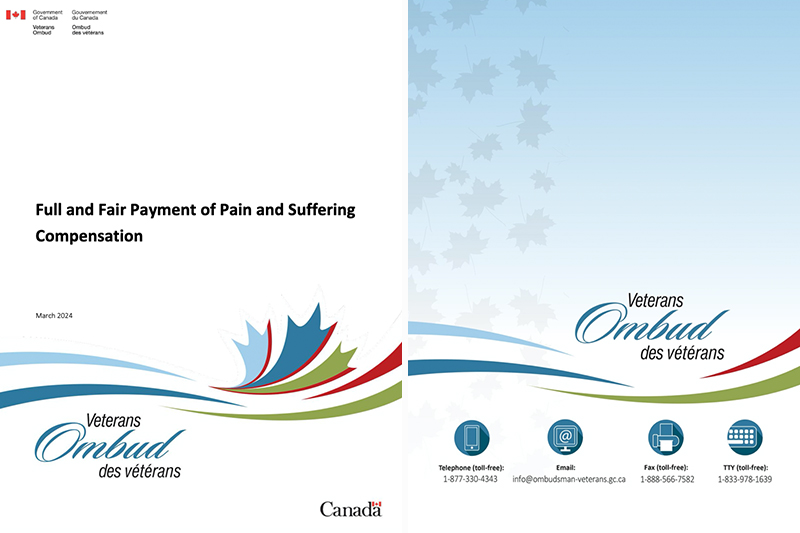
Key recommendations
Considering the inequalities for certain groups, the Veterans Ombud recommends that VAC resolve the unfairness for single veterans with no dependent children “who would have received more through the Pain and Suffering Compensation lump sum than their monthly payments had they elected it before their death.”
One of the ways VAC could do this, the Ombud suggests, is by designating a Veteran who died before choosing the lump sum payment to “have elected the lump sum on the day before their death.”
The Ombud also suggests that VAC ensures that veterans are given detailed information on the ins and outs of the benefits in plain language, explaining what will happen should they die without having chosen the lump sum payment.
Read the report here.


